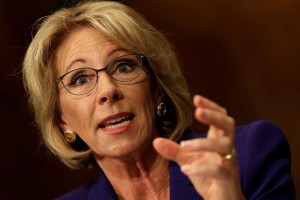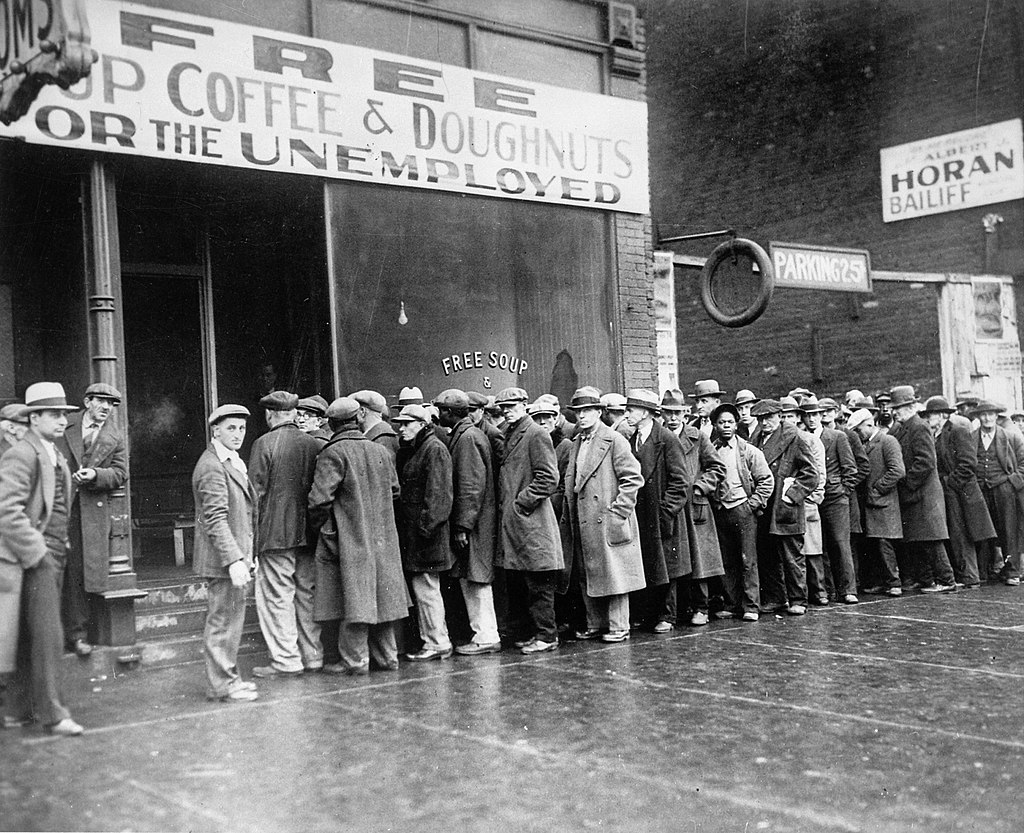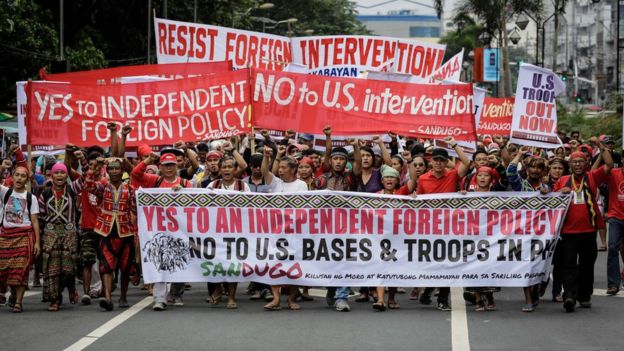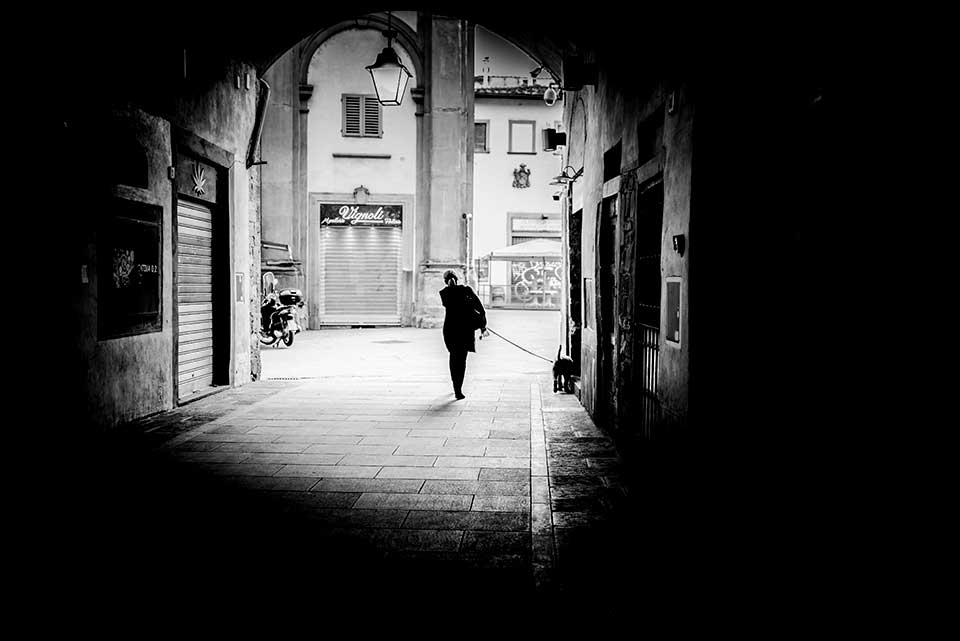With the world’s attention directed towards the coronavirus it may be worth changing focus, and analysing another international incident, the Cuban Missile Crisis. This hugely significant event occurred almost 60 years ago, officially from the 16th to the 28th of October 1962.
While humanity will eventually recover from the coronavirus outbreak, the missile crisis confrontation between America and the USSR came close to destroying our planet. The factors culminating in it were, overwhelmingly, due to American aggression and terror pursued by the John F. Kennedy administration against revolutionary Cuba. Perhaps most serious of all, as the missile crisis was peaking on 26 October 1962, president Kennedy was handed a vital letter in the early evening, written by Soviet leader Nikita Khrushchev.
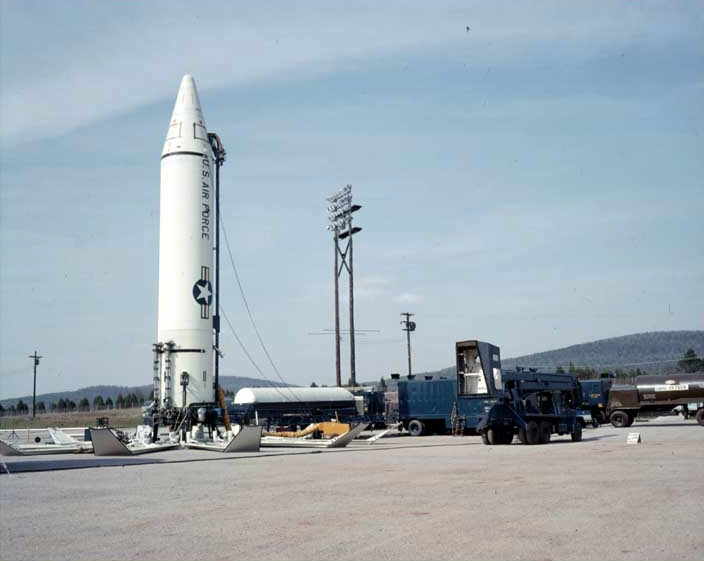
More than 100 US-built missiles having the capability to strike Moscow with nuclear warheads were deployed in Italy and Turkey in 1961. (Public Domain)
In Khrushchev’s lengthy correspondence to JFK, among other things he offered to end the missile crisis with a simultaneous public withdrawal of Soviet nuclear missiles from Cuba, along with the removal of US Jupiter missiles placed in Italy and Turkey, the latter country close to Soviet borders. The Kremlin, we can note, posed no threat of invasion to NATO state Turkey, nor was Moscow directing a major terrorist campaign against Turkey either.
President Kennedy was aware that if he refused Khrushchev’s offer, it would lead to an estimated 33% to 50% increased chance of nuclear war erupting between America and the Soviet Union. Yet Kennedy rejected Khrushchev’s proposal.
The highly regarded author and analyst, Noam Chomsky, wrote of JFK’s act that, “It is hard to think of a more horrendous decision in history – and for this, he is still highly praised for his cool courage and statesmanship” (1). Kennedy’s legacy has been crafted and romanticised to a somewhat surreal extent. When queried on JFK’s record by comparison to then incumbent Barack Obama, Chomsky said, “JFK was far worse, which is not a compliment to Obama”. (2)
Reflecting on the missile crisis Chomsky noted,
“The confrontation finally came down to two basic issues: [1] Would Kennedy pledge that the US would not invade Cuba? And [2] would he make a public announcement that the US would withdraw its Jupiter nuclear missiles from Turkey, on the border of Russia and aimed at its heartland? On both issues, Kennedy ultimately refused. He agreed only to a secret commitment to withdraw the missiles, which had in any case already been scheduled to be replaced by Polaris nuclear submarines. He refused to make any formal commitment not to invade Cuba”. (3)
It was important that Moscow be seen to capitulate before the eyes of the world, with a public withdrawal of their missiles from Cuba. JFK’s belligerence, it must be stressed again, knowingly made it much more likely that a nuclear conflict would ensue, killing hundreds of millions. The Holocaust, widely recognised as the worst crime in history, resulted in the deaths of around six million people.
With Kennedy rejecting Khrushchev’s proposal, this enhanced risk of nuclear war added to the many other risks – already in place – that occurs when tensions are ratcheted up between the world’s two nuclear and military superpowers. In a direct struggle, America was always the stronger and more dominant of the two rivals, holding incomparable advantages.
By 26 October 1962, the overall chance of a nuclear war starting was now undoubtedly approaching a 90% likelihood – and even surpassing that figure in the hours ahead. Hair-raising incidents, as we will see, bear proof of this.
On October 26th Kennedy was “leaning towards military action to eliminate the missiles” in Cuba, according to Sheldon Stern, the well-informed American author. This would almost certainly have resulted in a nuclear conflict.
JFK had moreover rejected Khrushchev’s offer, primarily because he did not want the obsolete US Jupiter missiles with nuclear warheads removed publicly from Turkey. It was feared that the US-led NATO alliance might crack, should such an agreement be carried out under apparent pressure from the Soviets.
Washington wished to preserve their right to place nuclear-armed weapons, and other advanced technology, wherever it wished. The Russians were afforded no such luxury, as Khrushchev would discover. While he was dispatching his missiles to Cuba by stealth, the Americans had openly encircled Russia with offensive instruments of war.
Kennedy’s disregard of the Khrushchev letter was undertaken in order to preserve US prestige, credibility and strategic superiority over Moscow. There is little doubt that these imperialist ambitions were deemed more important to Kennedy, and his advisors, than reducing the possibility of a sprint to the precipice.
In the event of nuclear war, America would be destroyed along with her NATO allies in western Europe, like Britain and France, as would many other countries, including of course the Soviet Union. However, Kennedy and his colleagues did not seek out their western European friends for counsel during the missile crisis, treating them with aloof disdain. Kennedy previously informed his Secretary of State Dean Rusk that Washington’s allies “must come along or stay behind”. (4)
JFK’s closest ally, British prime minister Harold Macmillan, told his cabinet members that Kennedy’s policies were “escalating into war” but that he felt unable “to stop it”. What Macmillan learnt came almost exclusively from British intelligence.
The day after Khrushchev’s letter arrived, 27 October 1962, a terminal nuclear war nearly broke out. The planet was saved that day only by the action of Vasily Arkhipov, a 36-year-old Soviet submarine officer. (5)
With Kennedy having refused to de-escalate the crisis, a dozen US warships zoned in on a Soviet nuclear-armed submarine located near Cuban shores. The submarine was operating legally in international waters, but it was tracked down by US vessels attempting to force a quarantine. Depth charges were then dropped.
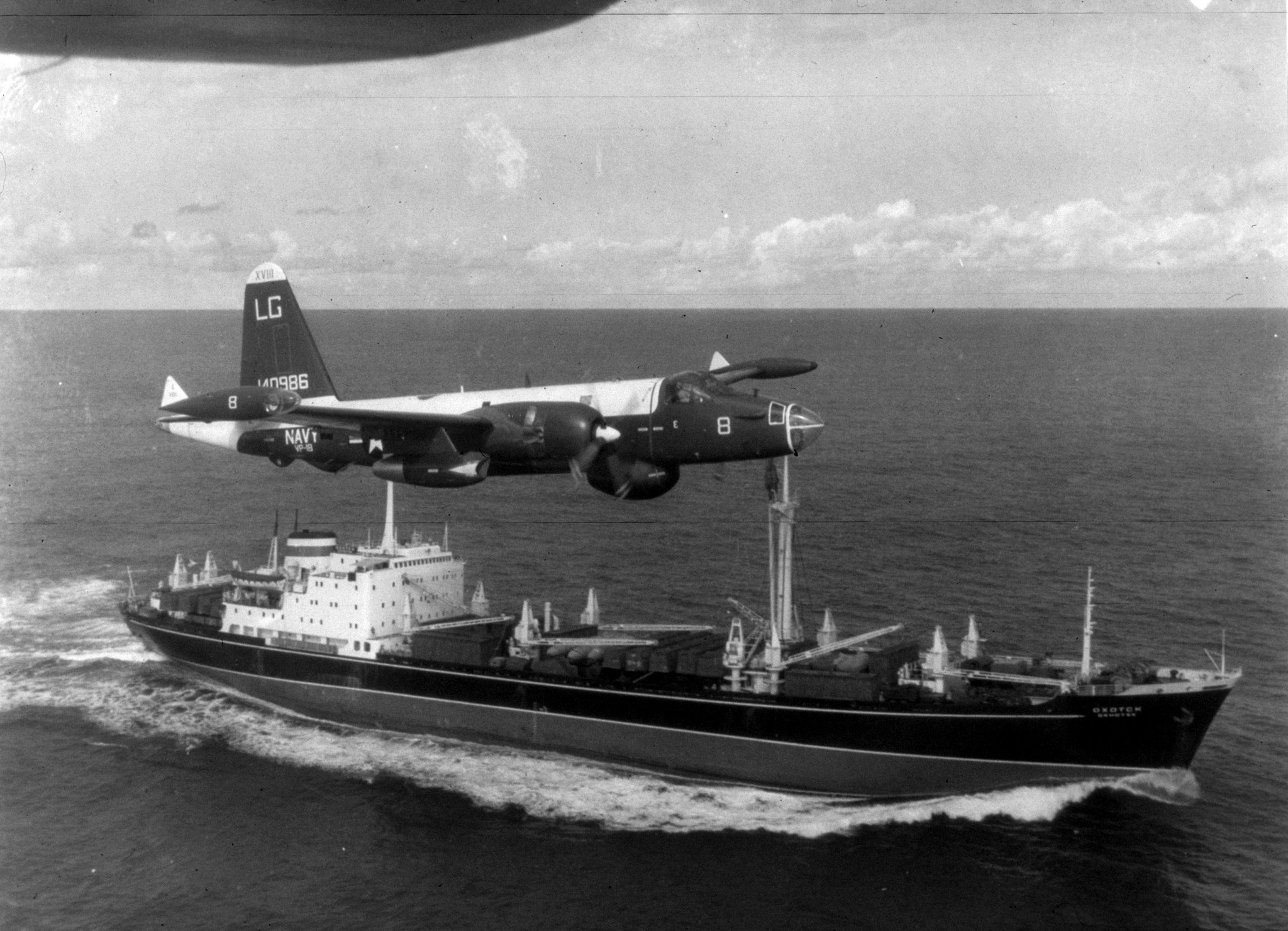
A US Navy P-2H Neptune of VP-18 flying over a Soviet cargo ship with crated Il-28s on deck during the Cuban Crisis. (Public Domain)
The Soviet crew became agitated, and were working in increasingly difficult circumstances. Air conditioning in the submarine had failed, with the heat almost too unbearable to endure. Some Soviet crew members fainted because of rising temperatures and the spread of noxious gases on board.
The submarine’s captain, Valentin Savitsky, wanted to fire their nuclear torpedo at the US destroyers, which consisted of a 15 kiloton weapon, equivalent in power to the Hiroshima atomic bomb. Captain Savitsky said,
“We’re going to blast them now! We will die, but we will sink them all; we will not become the shame of the fleet”. (6)
Losing contact with Moscow many days before, the Soviet crew were left in the dark, and did not know if war was taking place above the surface. Orders to fire the nuclear missile were subsequently blocked by Arkhipov, a man well respected and noted for his bravery in the past. In doing so, Arkhipov “saved the world” as Thomas Blanton commented, director of the National Security Archive at George Washington University. (7)
Had the Soviet nuclear torpedo been launched, Washington’s response in such a scenario was a large-scale nuclear attack on Russia; including very likely further assaults at the same time on China, Russia’s communist neighbour. The experienced military expert, Daniel Ellsberg, wrote that US plans called for nuclear strikes in any war on Russia and China together. The Chinese did not develop nuclear weapons until October 1964.
Ellsberg recalled that maps in US headquarters “did not demarcate at all between China and Russia. The Sino-Soviet bloc appeared as one giant landmass, with arrows and pins indicating the various targets” (8). Strategies to hit Russia and China with nuclear bombs were, in fact, firmly embedded in the highest echelons of US political and military circles, as noted by Ellsberg, who enjoyed top level clearance.
That the globe’s preservation came down to last minute interventions, reveals much of the shocking standard of leadership provided by Kennedy downwards; to a lesser extent too, Khrushchev and the Kremlin hierarchy. Khrushchev’s decision to station nuclear missiles on Cuban soil was terribly rash, particularly when faced with an aggressive and inexperienced opponent like Kennedy.
Such chilling close calls were not limited to October 27th. In the air, scores of B-52 American bombers were armed with thermonuclear bombs and ready to go. The US pilot, Major Don Clawson, was ever-present in the skies during these high risk manoeuvres. Clawson believes that the most dangerous day of the missile crisis was actually October 26th, and he remarked on that date,
“We were damned lucky we didn’t blow up the world – and no thanks to the political or military leadership of this country”.
Clawson reminisces on a list of bungling errors and confusion among the American leadership on October 26th, and more broadly during the missile crisis. Clawson wrote of his air commanders that they “did not possess the capability to prevent a rogue crew or crew member from arming and releasing their thermonuclear weapons” once airborne.
Clawson revealed it was impossible to call the pilots back, once they were sent on a mission. There was no inhibitor in the aircraft systems, so as to prevent an insubordinate pilot from initiating a nuclear attack on Russia. Clawson writes of their nuclear arsenals,
“it would have been possible to arm and drop them all with no further input from the ground”. (9)
The US Strategic Air Command (SAC), officially in charge, had little real control and no idea as to what was taking place. Combining all of these risks, one must conclude that we were highly fortunate to have survived this event. The threat of nuclear war was surely at over 90% in the final days.
A pivotal factor resulting in the missile crisis was indeed due to Washington’s malevolence towards Cuba. The attacks started from the winter of 1959-1960, under president Dwight D. Eisenhower, with CIA-supervised bombing and incendiary air raids on Cuba emanating from nearby Miami, and carried out by Cuban exiles.
The terrorist assaults continued under Kennedy – with speedboat machine gun fire on a Cuban seaside resort near Havana, killing a score of Cubans and Russians, contamination of Cuban sugar shipments, attacks on cargo vessels, and so on.
JFK stepped up the terror operations from August 1962 and, alarmingly, they continued right up to and even through the missile crisis. These blows were designed to soften Cuba up, which the White House expected would lead to “open revolt” on the island, before “final success” which “will require decisive US military intervention” in Cuba. The invasion was scheduled for October 1962, the same month as the missile crisis.
Image on the right: President Kennedy and Secretary of Defense McNamara in an EXCOMM meeting. (Public Domain)
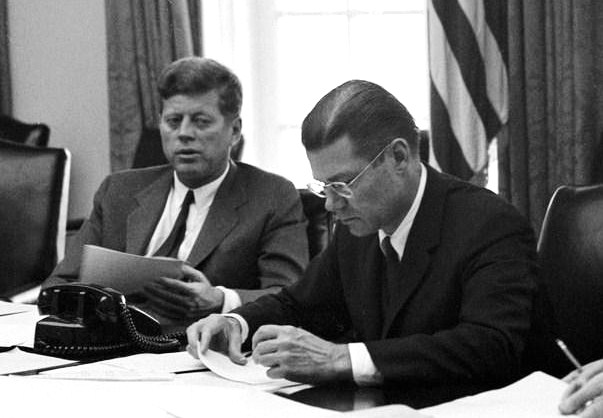
On 22 October 1962, Secretary of Defence Robert McNamara told his cabinet associates that “the president ordered us to prepare an invasion of Cuba months ago” (10). The plans were so far advanced that an attack could have been launched within seven days. The Cuban leader, Fidel Castro, and Khrushchev were quite likely expecting a US invasion of Cuba in October 1962. As can be seen, there were mitigating circumstances in Khrushchev’s decision to ship his weaponry to Cuba.
Khrushchev dispatched the missiles as a deterrent to US hostility, and certainly not for the prime purpose of attacking America. He was in addition trying to address the global military imbalance, which was greatly in favour of Washington, with US missiles dotted across Europe with Moscow in mind. Khrushchev wanted to give the Americans “a little of their own medicine”, as he assured colleagues. (11)
Another reason that the missiles in Cuba rankled with Washington, was that it acted as a possible impediment to a US invasion of oil rich Venezuela (12). The US government was then pondering an attack on Venezuela, as deliberated upon in private discussions between JFK and his brother, Robert Kennedy, the Attorney General.
Robert Kennedy, as requested by his older brother, was heavily involved in executing the terrorist campaign on Cuba. The younger Kennedy informed the CIA in early 1962 that overthrowing Castro is “the top priority in the United States government”.
These actions occurred on top of a failed invasion of Cuba in April 1961, at the Bay of Pigs (Playa de Giron). Plans for this illegal attack were extensively formulated by March 1960, in the final year of Eisenhower’s tenure. It was Kennedy who pushed ahead with the invasion once Eisenhower departed in January 1961.
Castro, a formidable adversary of the Americans from almost the beginning, had prepared for and anticipated this US attack at the Bay of Pigs; just as he would nip in the bud a number of terrorist acts. The Bay of Pigs invasion degenerated into a fiasco and personal humiliation for Kennedy, while Castro’s image was strengthened. The atmosphere in Washington after the failed attack was “almost savage”, as remembered by US diplomat Chester Bowles following his attendance at a cabinet meeting.
Kennedy swiftly enacted an even harsher embargo on Cuba, in order to punish the islanders for having the gall to repel a US-run invasion. The embargo was a separate consequential factor that led to the missile crisis 18 months later. Chomsky highlighted of the missile crisis’s conclusion that,
“war was avoided by Khrushchev’s willingness to accept Kennedy’s hegemonic demands. But we can hardly count on such sanity forever”. (13)
Western politicians and mass media, spinning fanciful tales, applauded Kennedy’s handling of the crisis while portraying it as a humbling defeat for Khrushchev. In reality the latter’s decision to remove the missiles eased, though did not entirely eliminate, the potentially catastrophic situation drummed up by Kennedy and his government.
Washington quickly resumed its rampages against Cuba. Less than two weeks after the missile crisis had supposedly ended, on 8 November 1962 an exile team dispatched from America blew up a Cuban industrial facility, killing large numbers of workers. This atrocity enraged Castro and presumably drew reactions of dismay in the Kremlin.
Six months prior to the Cuban Missile Crisis, in April 1962 Kennedy had deployed nuclear missiles to the Japanese island of Okinawa – which were virtually identical to those later sent to Cuba by Khrushchev (14). American missiles on Okinawa were in all probability pointed towards China, and comfortably within striking range of Beijing.
Kennedy stationed missiles in Okinawa at a period of growing regional tension, as antagonism simmered between China and US-backed India over a border dispute along the Himalayas. JFK was a popular and revered figure in India. (15)
*
Note to readers: please click the share buttons above or below. Forward this article to your email lists. Crosspost on your blog site, internet forums. etc.
Shane Quinn obtained an honors journalism degree. He is interested in writing primarily on foreign affairs, having been inspired by authors like Noam Chomsky. He is a frequent contributor to Global Research.
Notes
1 Noam Chomsky, “How Many Minutes To Midnight?” Guernica, 6 August 2014
2 Daniel Falcone, “Chomsky weighs in on Kennedy Assassination Anniversary: ‘It Would Impress Kim Il-Sung‘”, Truthout, 22 November 2013
3 Noam Chomsky, Hegemony or Survival: America’s Quest for Global Dominance (Penguin, 1 January 2004), p. 75
4 W. R. Smyser, Kennedy and the Berlin Wall: A Hell of a Lot Better Than a War (Rowman & Littlefield Publishers, Inc., 28 Aug. 2009), p. 167
5 Nicola Davis, “Soviet submarine officer who averted nuclear war honoured with prize“, The Guardian, 27 October 2017,
6 Rodric Braithwaite, Armageddon and Paranoia: The Nuclear Confrontation, (Profile Books; Main Edition, 21 Sept. 2017)
7 Callum Hoare, World War 3: How one submarine officer single-handedly saved world from nuclear war, Daily Express, 24 June 2019
8 Daniel Ellsberg, The Doomsday Machine, (Bloomsbury Publishing; UK ed. edition, 7 Dec. 2017)
9 Noam Chomsky, Who Rules The World? (Metropolitan Books, Penguin Books Ltd, Hamish Hamilton, 5 May 2016), pp. 102-103
10 Gus Russo, Stephen Molton, Brothers in Arms: The Kennedys, the Castros, and the Politics of Murder (Bloomsbury Publishing PLC; 1 edition, 28 Oct. 2008), p. 201
11 Raymond Garthoff, Reflections on the Cuban Missile Crisis: Revised to Include New Revelations from Soviet & Cuban Sources (Brookings Institute Press; Rev Ed edition, 2 Jun. 1989), p. 10
12 Chomsky, Who Rules The World?, p. 113
13 Chomsky, Who Rules The World?, p. 114
14 Jesse Johnson, “In first, U.S. admits nuclear weapons were stored in Okinawa during Cold War“, Japan Times, 20 February 2016
15 Colonel Anil Athale, “The Untold Story: How Kennedy came to India’s aid in 1962“, Rediff.com, 4 December 2012
Featured image: CIA reference photograph of Soviet medium-range ballistic missile (SS-4 in U.S. documents, R-12 in Soviet documents) in Red Square, Moscow. (Public Domain)


